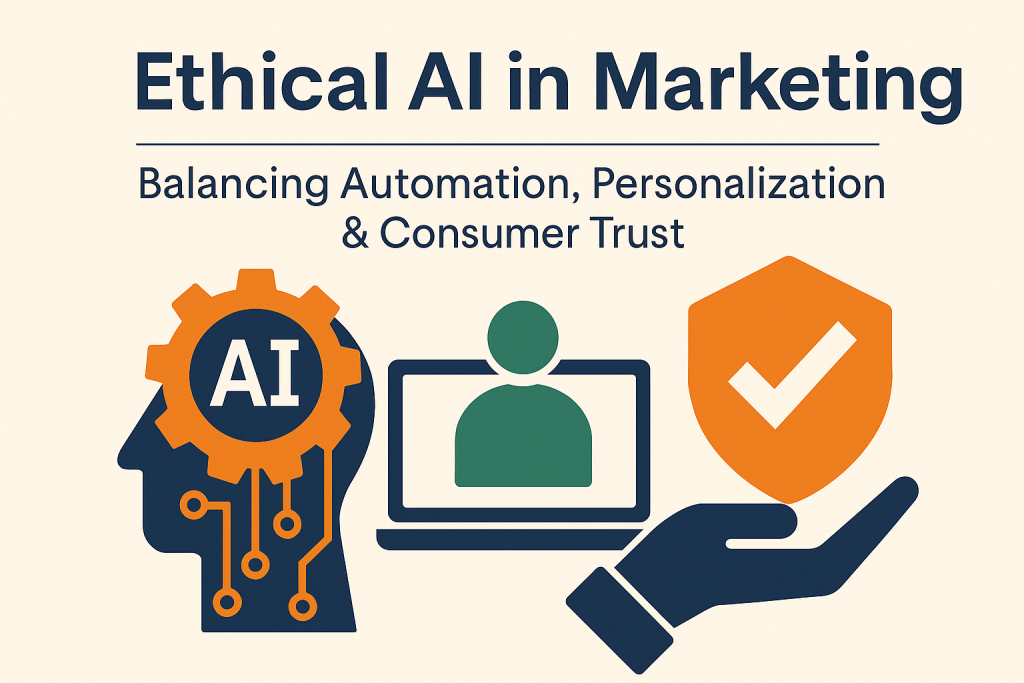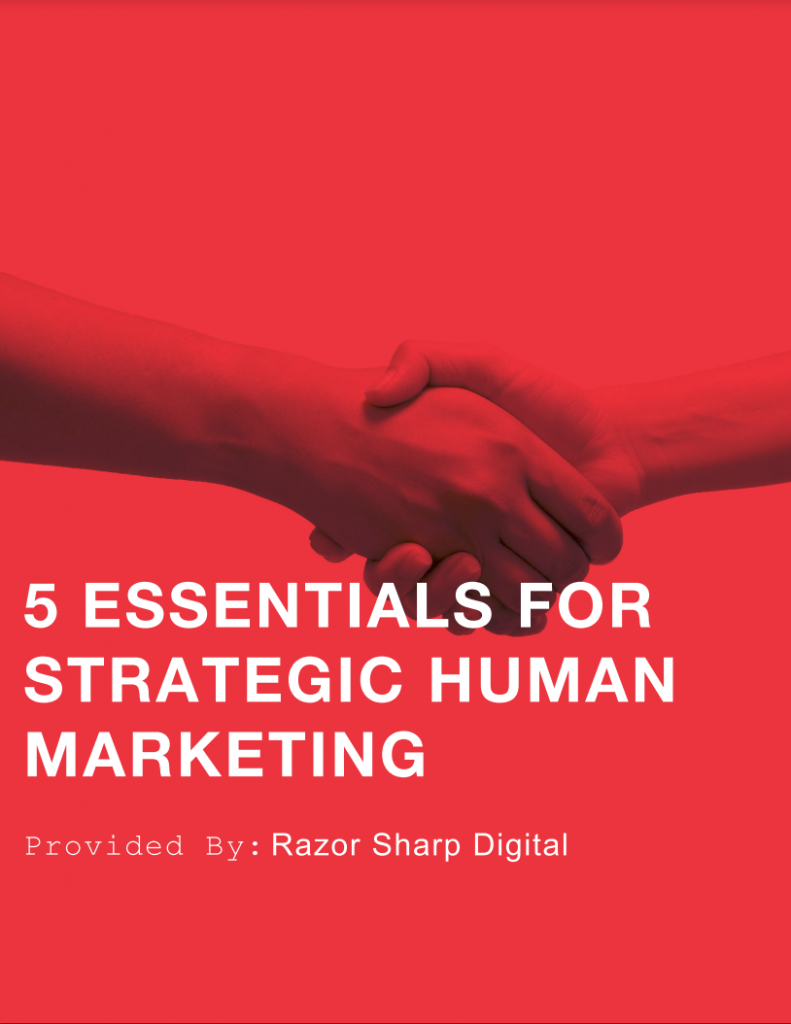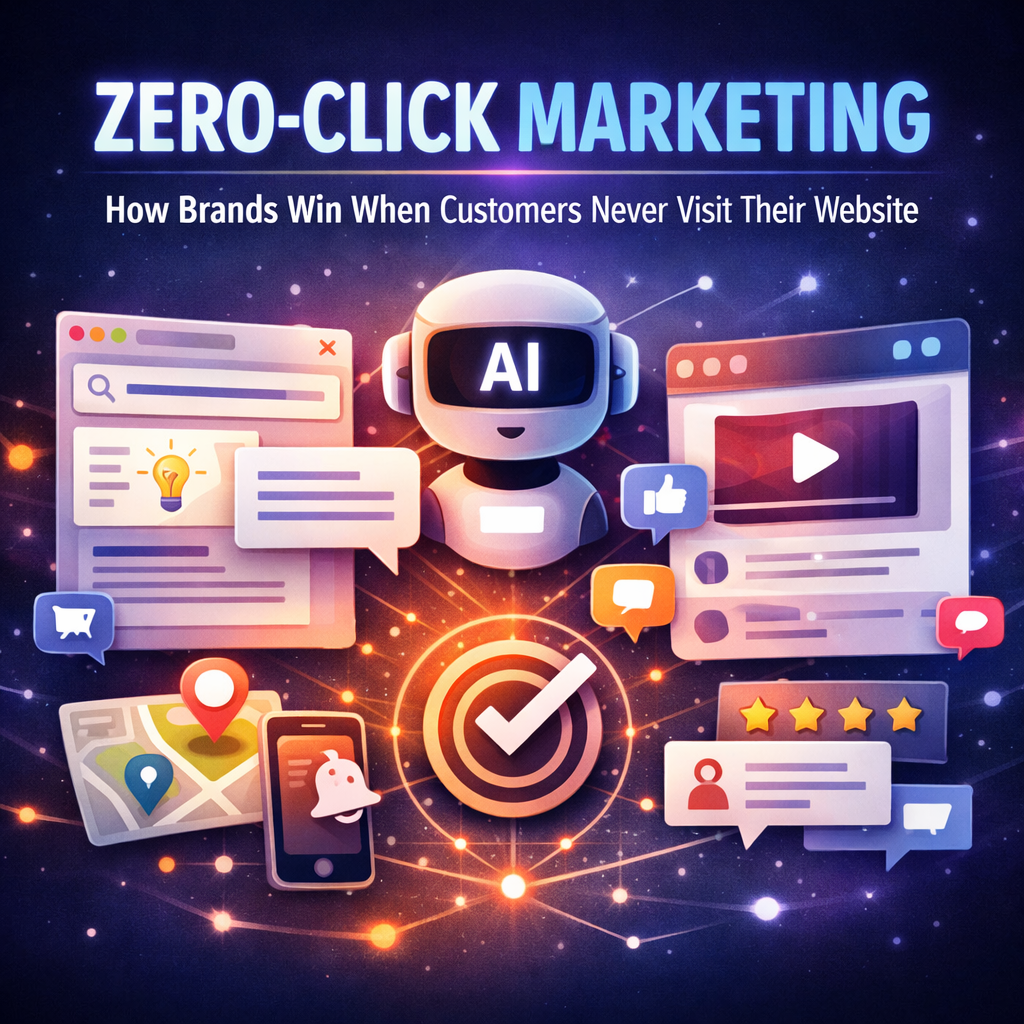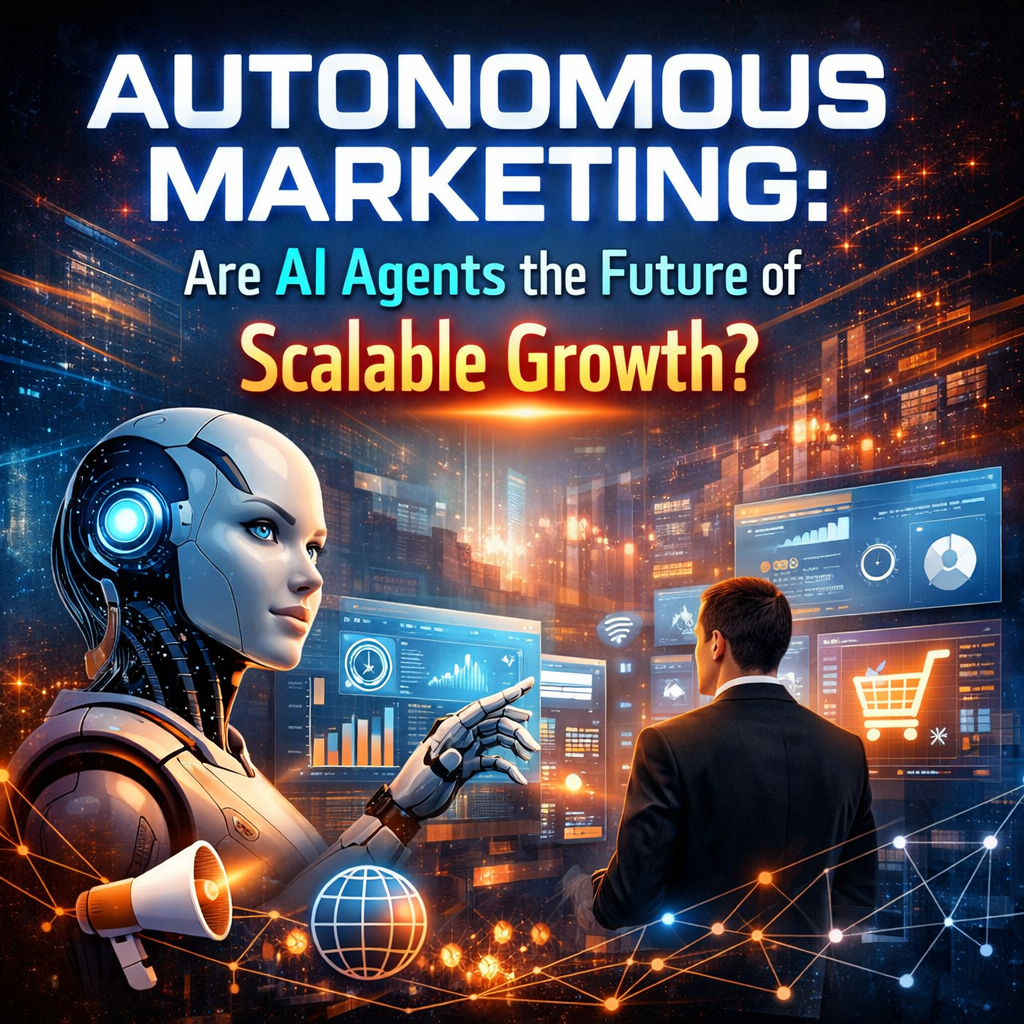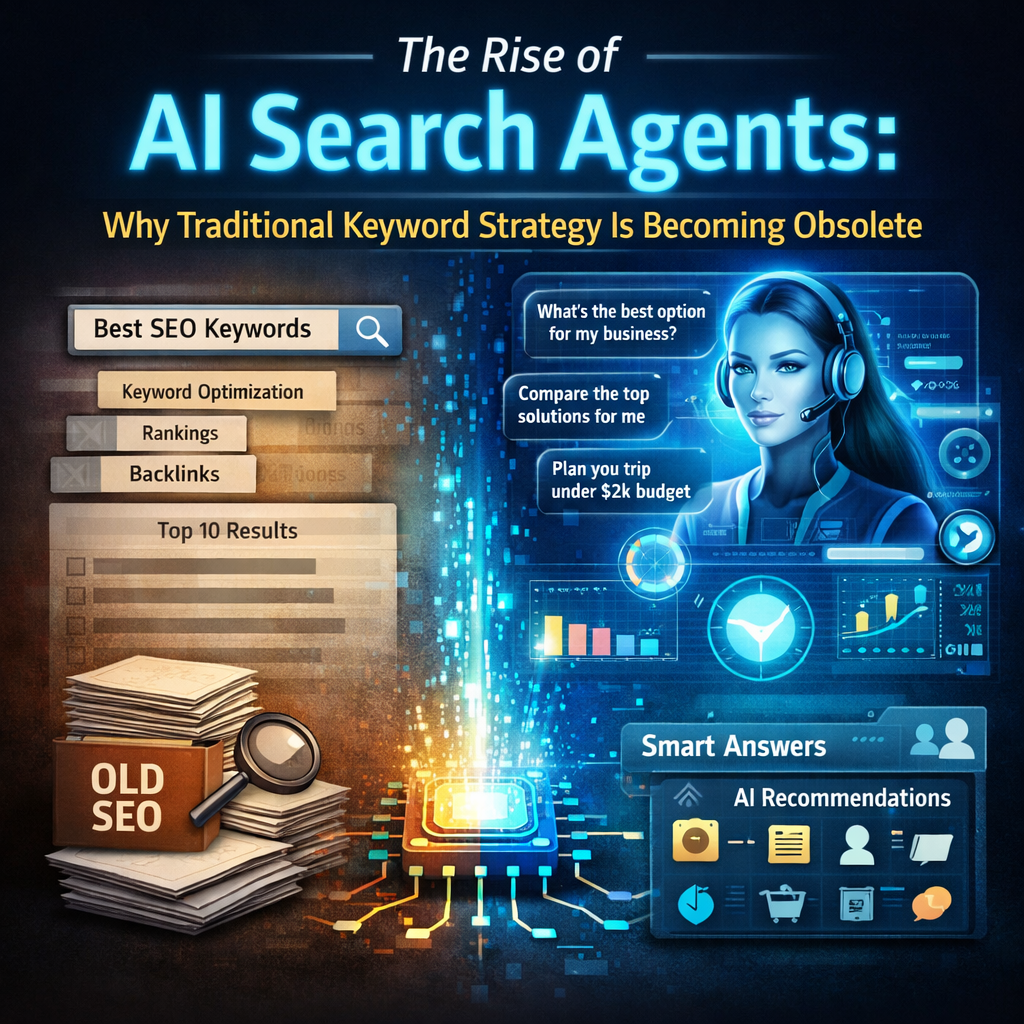How do we balance automation with authenticity?
How do we personalize without crossing the line into manipulation?
And most importantly—how do we build trust in a world increasingly powered by algorithms?
In this article, we’ll break down how to navigate the evolving intersection of AI, ethics, and marketing, and how brands can use automation responsibly—without losing their human touch.
1. The New Marketing Reality: AI Is Everywhere
AI is no longer an experimental add-on in marketing—it’s the backbone. Whether you realize it or not, nearly every interaction you have with a brand involves AI:
The personalized ad you saw this morning? AI.
The subject line that caught your eye in your inbox? AI.
The chatbot that solved your question in seconds? Definitely AI.
According to Salesforce’s State of Marketing report, over 84% of marketers already use some form of AI in their workflows. That includes content generation, segmentation, lead scoring, and even dynamic pricing.
Yet as automation expands, the human element of marketing—the empathy, intuition, and ethics behind decisions—can easily fade into the background. This tension between efficiency and ethics defines the next phase of digital marketing’s evolution.
2. Why Ethical AI Matters More Than Ever
When consumers share their data, they expect more than just a tailored experience—they expect fairness, transparency, and respect. The misuse or overreach of AI can erode that trust in seconds.
Consider these common pitfalls:
Over-personalization: Targeting users so precisely that it feels invasive.
Bias in algorithms: AI models that unknowingly favor certain demographics over others.
Lack of transparency: Automated systems making decisions customers don’t understand or can’t challenge.
Manipulative tactics: Using AI insights to exploit vulnerabilities or emotional triggers.
As marketers, the ethical challenge is clear: just because AI can do something doesn’t mean it should.
Consumers are watching. A recent Ipsos study revealed that 75% of people worry about how companies use their personal data, and 60% say they trust brands less when interactions feel “too automated.”
That means building ethical AI practices isn’t just about compliance—it’s about competitive advantage.
3. The Three Pillars of Ethical AI in Marketing
To balance innovation with integrity, brands must anchor their AI strategy on three key pillars: Transparency, Accountability, and Consent.
A. Transparency: Make the Invisible Visible
Most consumers don’t mind AI if they know it’s being used. What they dislike is being deceived. Brands should disclose when AI is driving communication or decisions.
Examples:
Adding “Powered by AI” or “AI-assisted” to chatbots and email footers.
Explaining how recommendations are generated.
Clearly identifying synthetic or AI-generated content.
Transparency builds familiarity—and familiarity builds trust.
B. Accountability: Humans Must Stay in the Loop
Automation doesn’t absolve responsibility. Every AI decision should have a human behind it who understands, approves, and monitors its outputs.
For marketers, that means:
Regularly auditing campaigns for bias or unintended consequences.
Setting ethical guidelines for AI use (e.g., what’s off-limits).
Appointing an AI ethics officer or internal review team for oversight.
AI is the tool. You’re the strategist.
C. Consent: Give Consumers Control
Consumers should have agency over how their data is used. This includes:
Transparent opt-in and opt-out mechanisms.
Clear explanations of what data is collected and why.
Options to modify personalization levels.
When customers feel in control, personalization transforms from creepy to convenient.
4. Automation vs. Authenticity: Striking the Right Balance
The biggest misconception about AI in marketing is that automation and authenticity can’t coexist. The truth? They can—when applied thoughtfully.
Here’s how to keep the balance:
1. Use AI to Enhance, Not Replace, Human Creativity
AI can analyze, optimize, and scale—but it can’t replicate human emotion. Use it to handle repetitive or data-heavy tasks, freeing your team to focus on strategy and storytelling.
Example:
Let AI analyze engagement data to suggest blog topics—but let your writers craft the narrative through real human experience.
2. Build Personalization Around Empathy, Not Exploitation
Personalization should solve problems, not manipulate decisions. Ethical personalization means asking: “Does this message genuinely help the customer?”
Instead of:
“We noticed you’re feeling stressed—buy this product.”
Try:
“If you’ve been looking for ways to reduce stress, here are a few helpful resources.”
3. Monitor for Bias Constantly
AI learns from data. If that data is biased, your campaigns will be too. Diverse data sources, regular audits, and human review are crucial to ensure your outputs reflect fairness and inclusion.
5. Data Privacy: The Foundation of Consumer Trust
Ethical AI begins with ethical data. Data privacy regulations like GDPR, CCPA, and CPRA have forced brands to rethink how they collect, store, and use consumer information.
Marketers must:
Collect only the data they need.
Be transparent about how it’s used.
Protect it with modern encryption and security measures.
But beyond compliance, privacy is a matter of respect. The more control you give customers over their information, the more likely they are to share it.
Pro Tip: Treat every customer data point as a privilege, not a right.
6. AI Transparency: How to Show Your Work
In AI-driven marketing, transparency isn’t just a buzzword—it’s a strategy. Consumers reward honesty.
Here are actionable ways to increase visibility into your AI systems:
Explainable AI (XAI): Use models and dashboards that show how AI arrived at its conclusions.
Disclosures in marketing assets: Label AI-generated content clearly.
Educational content: Teach your audience about how you use AI responsibly.
Internal documentation: Keep a living record of how AI tools are trained, tested, and deployed.
Transparency reduces confusion—and confusion is the enemy of trust.
7. The Regulatory Landscape: What Marketers Should Know
As AI becomes more powerful, governments are stepping in. In 2025, several key frameworks are shaping how AI can be used in marketing:
EU AI Act: Regulates “high-risk” AI systems and mandates transparency for AI-generated content.
U.S. FTC Guidance: Cracking down on deceptive or manipulative AI practices in advertising.
State-level AI laws: Emerging in California, New York, and Illinois, focusing on data usage and algorithmic fairness.
Marketers must stay proactive—ethical compliance is cheaper than legal consequences.
8. Building Consumer Trust in the AI Age
Trust isn’t built through a privacy policy—it’s built through consistency. Consumers need to feel that your brand has their best interests at heart.
Here’s how to earn and sustain that trust:
1. Be Honest About AI’s Role
If an email was written with AI assistance, say so. People value honesty over perfection.
2. Keep a Human Touch
Blend automation with empathy. Whether it’s a personalized video message, live support option, or authentic storytelling—keep people at the center.
3. Measure Trust, Not Just Clicks
Track brand sentiment, feedback, and loyalty—not just conversion rates. Trust is the ultimate ROI.
9. Real-World Examples of Ethical AI in Action
Sephora: Uses AI to recommend products but discloses how recommendations are generated, giving customers transparency and control.
Spotify: Personalizes playlists while offering clear settings to manage listening data.
Patagonia: Leverages AI for supply chain optimization while maintaining human oversight to ensure sustainability goals aren’t compromised.
Each of these brands uses AI to enhance their mission, not overshadow it.
10. The Future: Human + AI = Ethical Advantage
The future of marketing isn’t AI vs. Human—it’s AI + Human. The most successful brands will be those that combine data-driven precision with genuine empathy.
AI will predict behavior.
Humans will interpret intention.
Together, they’ll create meaningful, trustworthy connections at scale.
The ethical marketer of tomorrow isn’t just a technologist—they’re a steward of humanity in a digital world.
Doing the Right Thing Pays Off
Ethical AI isn’t a limitation—it’s a differentiator. In an era where trust is currency and data is power, doing the right thing isn’t just morally right—it’s strategically smart.
Automation will continue to evolve. Personalization will grow even sharper. But no matter how advanced technology becomes, the brands that lead with ethics will always lead the market.
Because when it comes to marketing, the most powerful algorithm is still human trust.



